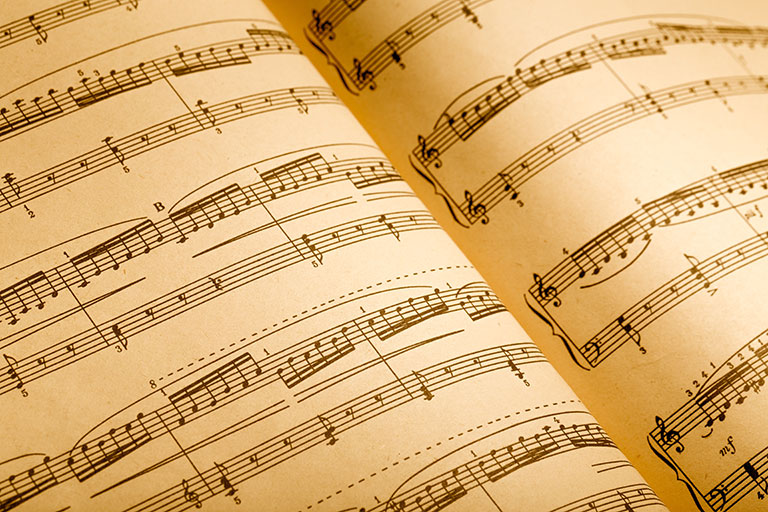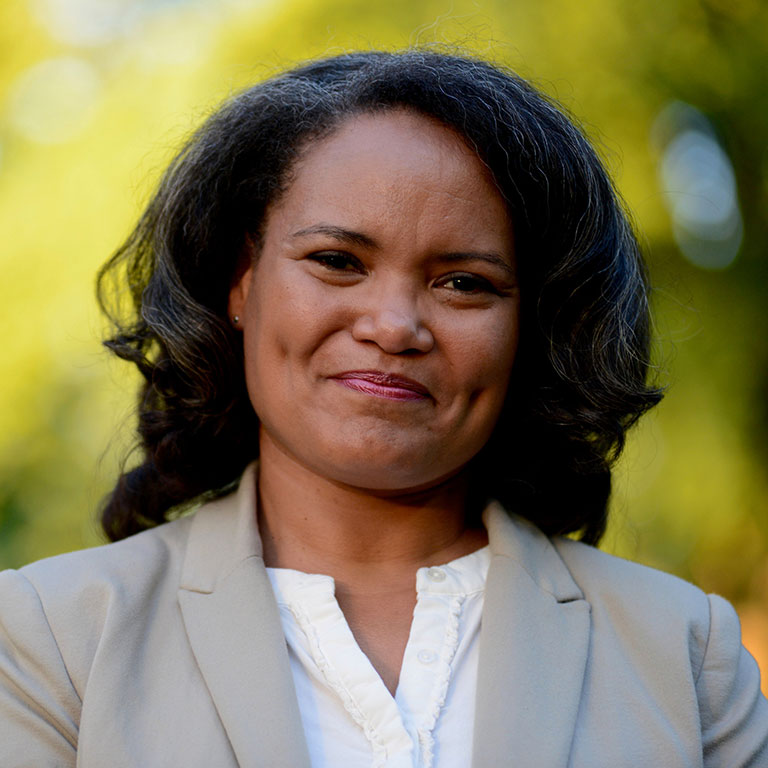January 2021
Opera isn’t the first topic that comes to mind when we think about race issues. But as racial justice protests proceeded over the summer of 2020, Indiana University musicologist Ayana Smith came up with an idea.
A specialist in Italian baroque opera, Smith developed a project called “Creating Real Change: The Pedagogy of Race and Representation in Music History.” Supported in part by funding from IU’s Racial Justice Research Fund, the project aims to reform the way music history is taught at IU Bloomington’s Jacobs School of Music and beyond.
"This project is about offering a new approach to curricular change and about transforming the role that music history plays in our students' educational and professional lives,” said Smith, an associate professor of musicology at the Jacobs School. “I argue that changing the topics we teach cannot solve our curricular problems. We can only effect real change by reforming why and how we teach our repertory.”
Western music history curricula at universities and conservatories is dominated by a “white genius” narrative, says Smith, who has done research on race and representation in baroque opera.
“Western music history education and performance center on the white, mostly male, Christian perspective,” she said.
Smith experienced firsthand how hard it can be to change that perspective during her own musical training as a young person. When she prepared some material by African American composer Scott Joplin for a piano teacher, the teacher replied, ‘No, we’re not going to study that.’"
“Technically,” Smith said, “the challenges presented by Joplin’s work are about the same as those presented by Chopin’s Études, so why not study Joplin? Why not compare Chopin’s structures to music that exists in the African American tradition? That’s a cultural problem, not a music problem.”
She noted that over recent decades, many historians and theorists have worked to broaden the scope of composers and musicians included in Western music history, but such efforts have tended toward tokenism.
When African American composers are included, she said it’s often in a marginalized way, focused on identity rather than what’s going on musically in their work.
“In Western music history, African-American music is often disconnected from the other stories we tell,” Smith said. “We represent the composers and works through racial idioms, rather than connecting them to broader musical history, and in doing so we ignore all the other fascinating aspects of that person’s life and work. I’m hoping to change peoples’ minds about how including different voices contributes to a richer outcome.”
Smith’s project will generate new, more inclusive methodologies, templates, frameworks, and curricular products that can be used in any music class, regardless of subject matter, chronological era, or geographical region. Smith said the materials will be flexible, available to help inform and modify aspects of music courses such as choice of repertory, recordings, assigned readings, or in-class discussions.
Smith’s project will also offer case studies, such as a research article on George Frideric Handel’s opera “Giulio Cesare” that she’s currently preparing with her collaborators Devon Nelson, adjunct assistant professor of music at the Jacobs School; Miguel Arango Calle, a doctoral student at the school; and graduate assistant Deanna Pellerano.
“We’re looking at race and power structures in the opera,” Smith said. “We’re taking into account how the colonialism of the 18th century influenced Handel’s operatic works. It’s a whole new way of thinking about what operas might have meant for audiences at the time as well as for creators.”
Eventually, Smith and her collaborators want to make all the materials available online as resources and tools for music faculty anywhere. She also plans to create and build community engagement and partnerships.
“We’re hoping to find new ways to make this music and its themes more accessible,” she said. “Migration, employment, agriculture – these are all themes that affect people of southern Indiana today just as they affected the African Americans who created the repertory we’re working with. We’d like to use the music to build bridges between the past and today’s society.”
Smith said she’s been very encouraged by the eagerness of IU music school faculty and students to collaborate on the Creating Change project.
“A few years ago, I think there may have been more resistance to these ideas, but there’s been a shift. Faculty and students alike want to make changes now,” she said. “We starting to reckon with different ways of studying identity in Western music tradition, which encompasses much more diversity than our music history pedagogy suggests. Why should we continue to silence these voices?”



